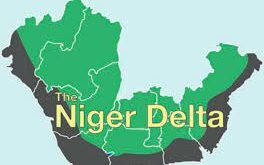By Josiah Egbilika
The World Day Against Child Labor is celebrated every June 12 of the year. It is a day set aside to raise awareness and solicit for prompt actions to stopping child labour in all of its forms. The International Labour Organziation (ILO) launched the Day in 2002. Since then, the day has focused attention on the prevalence of child labour throughout the world, and the actions needed to eliminating it.
According to the the International Labour Organziation, Child Labour refers to any work that is mentally, physically, socially or morally dangerous and harmful to children; that deprives them the opportunity to attend school or that cause any form of harm to children.
The World Day Against Child Labour since its inception in 2002, has sought for ways to eliminate child labour in the world. According to the Global Estimates of Child Labour Results and Trends report of 2012-2016 released in 2017 by International Labour Organization in Geneva, Switzerland, there are about 152 million children in child labor and 73 million of them are engaged in hazardous works that directly harm their health, safety or moral development.
Meanwhile, a recent statistic reported by United Nations shows that 160 million children are still engaged in child labour amounting to one in ten children worldwide. According to the report, Africa ranks highest with 72 million children in child labour, Asia and the Pacific ranks second highest with 62 million, Americas with 11 million, Americas, Europe, Central Asia and Arab State amount a total of 18 million children facing child labour.
In Nigeria, the National Bureau of Statistics report titled: Nigeria Child Labour and Forced Labour Survey 2022, shows that Twenty-Four Million, Six Hundred and Seventy Three Thousand, Four Hundred and Eighty-Five (24,673,485) amounting to 39.2% of children between five to seventeen years face child labour, while 22.9% amounting to Fourteen Million, Three Hundred and Ninety Thousand, Three Hundred and Fifty Three (14,390,353) children are involved in hazardous work.
There have been various reports of child labour in Nigeria. Children starved of food from morning to evening. Some carry loads bigger than their age, some others are trafficked in the name of succour to face inhuman treatment in the hands of their caregivers.
It is on this premise that I call on the government and the public to join hands together in eliminating child labour in Nigeria. It is true the government has passed the Child Rights Act (2003) into law which seeks to protect the rights of children, its implementation however has been low. To this, the government should as a matter of priority build the capacity of security agents towards implementing the Child Rights Act of 2003, establish family courts all over the country and add the trials of perpetrators of child labour as part of their responsibilities.
The National Agency for the Prohibition of Trafficking in Persons, NAPTIP should collaborate with community-based security outfits to fish out those who traffic children in the disguise of providing succour, only to engage them on child labour.
Non-Governmental Organizations, NGOs and the media should take it as a responsibility to create more awareness on the ills of child labour to children. NGOs should engage local communities, traditional and religious leaders to seek for the protection of child rights. The media should create programmes, jingles and discussions that facilitate the elimination of child labour in the society. these actions will help to enhance knowledge of what child labour is all about, the effects and danger of child labour to the society.
Citizens can assist by reporting those perpetrating the act to appropriate security agencies, speak out, act judiciously whenever they see someone engaging in child labour. If we need to eliminate child labour in Nigeria, we must all show commitment and take precise actions to fight against Child Labour in the country.
Mr Egbilika is an Indigenous Language advocate, Gender and Human Rights defender
 PH Mundial – Port Harcourt Online Newspaper News Across The Region
PH Mundial – Port Harcourt Online Newspaper News Across The Region





